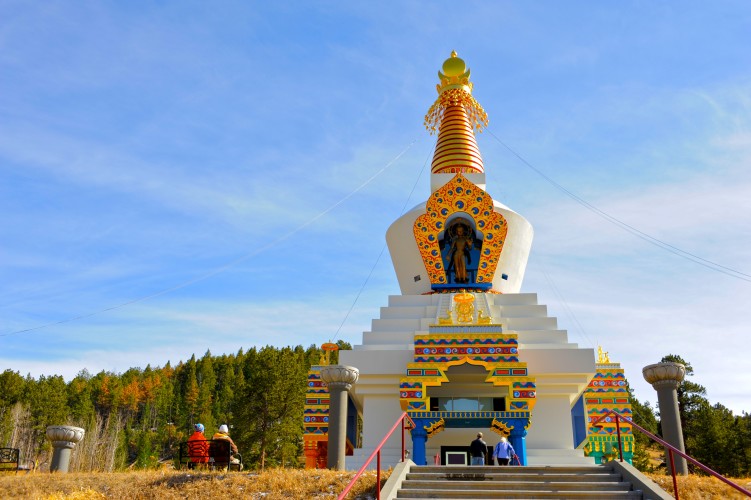
Shambhala Mountain Center (SMC) announced that it has severed some ties with the legal organization headed by Shambhala’s spiritual leader, Sakyong Mipham Rinpoche, in a statement released on Tuesday. The center, located in the Rocky Mountains of Colorado, also announced steps to rebuild surrounding forests following wildfires in 2020 that devastated much of the area.* In the same statement, the center reported updated financial information, including a plea for funds ahead of 2022.
Michael Gayner, executive director of Shambhala Mountain Center, offered updates on the center after the Cameron Peak Fire, which destroyed several buildings and damaged others in September 2020.
“Despite the tragedy and devastation of the fire, SMC has been recognized as an exemplar of regenerative, conservation-based land stewardship,” Gayner noted in a letter. “In 2018, we completed Phase One of a three-phase conservation forestry project that treated 125 acres [51 hectares] in an effort to restore forest health, and this past spring we completed Phase Two.”
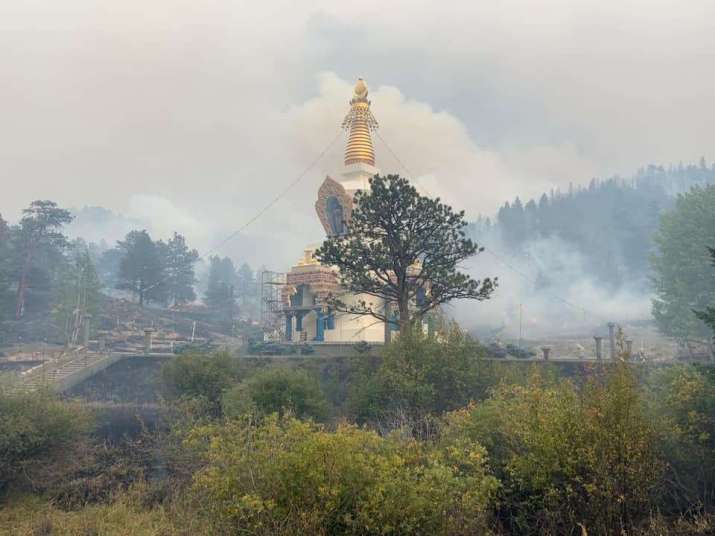
The work done by SMC won the Larimer County Land Stewardship Award. In the letter, Gayner said: “When the Cameron Peak Fire swept through the land, it slowed down and burned less searingly hot in the treated areas, enabling firefighters to establish SMC as the northern anchor of their defensive line and stop the further spread of the fire in our area.” (Shambhala Mountain Center)
Regarding the newly established self-governance of the center, Gayner wrote: “For many years, the Sakyong Potrang (the nonprofit entity that holds the assets of the Sakyong Lineage) has held a seat on the Governing Council, Shambhala Mountain Center’s board, and has held veto power in a few key areas of SMC governance. Both the Potrang and SMC Boards recognized this arrangement to be no longer necessary, and after much discussion the Sakyong Potrang graciously agreed to relinquish the veto powers and its seat on the SMC Governing Council.” (Shambhala Mountain Center)
For context, Gayner said that Shambhala Mountain Center has long operated independently of the Potrang, both legally as a separate 501c3 Educational nonprofit entity and in practice, hosting a number of teachers and programs from across Buddhist traditions and beyond them, including secular and non-secular wisdom traditions.
Nonetheless, the center will “remain committed to serving the Shambhala community and providing a space for a wide range of secular and non-secular wisdom traditions, practices, and activities.” (Shambhala Mountain Center)
Like many religious organizations across the world, the COVID-19 pandemic has been costly for Shambhala Mountain Center. Gayner observed that as they head into winter, they are offering fewer courses and teachings than normal and will need to raise money to cover expenses.
The organization is also working to emerge from the numerous allegations of abuse and misconduct raised against leading members of the Shambhala Buddhist organization, including the organization’s spiritual leader Sakyong Mipham Rinpoche. In 2020, before the fires, students at Chapman University suspended their travel course to Shambhala Mountain Center, citing the “disturbing behavior” of an SMC staff member.
Shambhala Mountain Center was established in 1971 by Chogyam Trungpa Rinpoche, a year after Trungpa’s first arrival to Boulder, Colorado, and three years before his founding of Naropa University. It is settled on some 243 hectares north of Boulder.
See more
Important News from SMC (Shambhala Mountain Center)
Chapman University suspends travel course to Shambhala Mountain Center (Lion’s Roar)
Related news reports from BDG
Shambhala Mountain Center in Colorado Loses Buildings to Wildfire
Police Launch Investigation into “Possible Criminal Activity” at Shambhala Mountain Center
Andrea Winn Exits Buddhist Project Sunshine




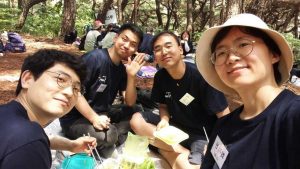

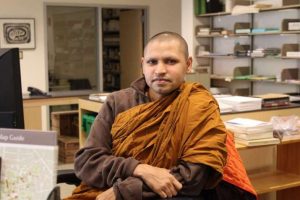



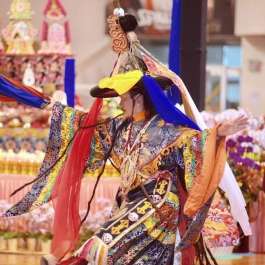

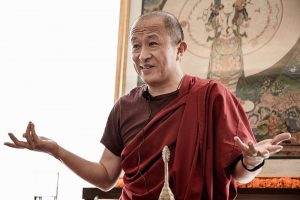

In the first paragraph, Sakya should be Sakyong.
Dear Marissa – many thanks for spotting the error and letting us know. It has been corrected.